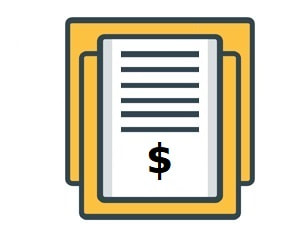Lending Money to Friends & Family (and How to Get Paid Back)
Lending money to friends and family is not an easy decision. Our guide covers everything you need to know, including how to get repaid without losing a friend.
Updated 7 February 2024
Summary of Lending Money to Friend and Family
Summary of Lending Money to Friend and Family
- Being asked to lend someone money is never a great feeling - there's a lot of guilt and pressure, and often it's hard to talk about it with anyone else.
- Our view is that the best approach is to decline such requests, as lending money is so often plagued with problems.
- If you do lend money, it's not uncommon to see the borrower on Instagram with dinners out, drinks at the bar, concerts, seats at major sporting events, new clothes etc. A lot of feelings come in to play, and asking for your money back can be difficult and emotional.
- As a lender, you may also be asked for more money later on, and it can feel like you're being taken advantage of.
- You may also need the money yourself - many MoneyHub users we spoke to talked about going from 'flush to poor' after lending money to a friend or family member.
- If you are determined to lend money, our guide sets out a proven way to be repaid without too much drama.
- Lending money is never easy, and people who borrow often have a tendency to be in your life less and less.
This guide covers:
- 10 Reasons NOT to Lend Money to Friends and Family
- 5 Excuses to Avoid Lending Money...and not feel bad about it
- 6 Essential Must-Know Tips if You Must Lend Money
- Getting the Loan and Repayment Terms in Writing
- Get Repaid Now - our suggested action plan to getting your money back, no matter how the loan came about
- Legal Help - how to use the law to get your money back
- Recent Reader Comments
10 Reasons NOT to Lend Money to Friends and Family
There are many reasons not to lend money, which we outline below in detail.
Your friendship or relationship will sufferA loan affects a friendship or relationship, without exception, and is basically the collateral for the balance borrowed. For example, if a friend doesn't repay you, it's unlikely you will continue to be friends. There are exceptions, but generally the dynamic completely changes. The borrower feels guilt, and the lender has to spend time thinking about how to get repaid, none of which is healthy for either party.
|
You might need the money shortly after you lend itYou may feel like a quick loan isn't going to break the bank, but you still won't have access to the money you lend, and you never know when you'll need it. Borrowers don't have a tendency to repay in full shortly after you lend them money. This means your willingness to help could leave you financially squeezed should something come up.
|
You don't solve the person's problemBorrowing money is a quick-fix solution, but it's unlikely to solve the underlying problem. There will always be genuine reasons for a loan - emergency home repairs, school-related costs or an overdue power bill etc. However, there are not-so-helpful reasons - addictive gambling and retail spending can cause a borrower to be short of money. If this is the case (and it so often is), lending money isn't going to change the pattern of behaviour. Instead, it enables the same financially-destructive behaviour to continue. You may be repaid, but the money likely came from someone else, and with almost certainty, you will be asked for another loan later on.
|
It is likely you'll be asked for moreWithout being cynical, borrowers love lenders a bit too much. If you readily lend, the borrower knows you are a good source of money. If in need, you will be asked first. This changes the dynamic of the relationship completely, and you may find yourself being asked for money more than you are asked to meet up socially.
|
Without a plan, it can take a lot of time to chase up and manage repaymentsMany loans are made in a rush, with little thought about how or when it's going to be repaid. Borrowers often don't like talking details when asking for money, with the focus being fixing their financial issues. Many times, lenders have to chase and chase for payment, which is stressful and attracts a lot of bad feelings. Realistically, there are no benefits for the lender.
|
Both lender and borrower feel awkward when they meet in social settingsYou may meet the borrower in social scenes - nights out with friends, or family gatherings. If you have not been repaid, you will be unable to talk about the loan face to face. Borrowers have been known to message in advance saying they're 'looking forward to seeing you' but 'not to talk about the loan if that's OK' or similar. Lenders feel marginalised and don't enjoy the gathering as much as they would because of the loan issue.
|
Loans can turn into gifts for family membersLoans to adult-aged children have a history of turning into gifts. Families can be complicated, and mixing in loans and expectations can mean things can take a turn for the worse. The media constantly reports on large-scale fallouts between parents and their children due to loans. Families are too precious to fracture with money.
|
You will become a debt collector to your friend or family memberAs mentioned above, a borrower is focused on getting money, and not so much repaying it. This means you will need to set terms, send reminders, keep track of repayments, check your bank account for new deposits, manage extensions or late payments and so many other tasks. It is always a chore and never something to look forward to. None of it feels good - at all.
|
Loans are most often interest-free, meaning you lose out...every dayIt's not an issue for loans of $100 or even $500, but many people lend $1,000 to $10,000 to friends and family members. If you lend $10,000 and it takes 2 years to be repaid, you'll lose around $500-750 in interest had you put it in the bank.
|
Borrowers don't see your loan as a priorityPeople who borrow money have a lot going on. Your loan may not be a top priority for repayment when there are power bills, car costs, rent or mortgage and various other bills to pay. In fact, your loan may be seen as a 'friendly debt' or something far less urgent than you feel it should be. This is best explained by an anonymous reader's comment below...
A reader writes:
I lent my sister $10,000 which is absurd because she's an accountant and I am just out of uni, so I would have thought she should be more financially aware. Anyway, after lending the money I didn't get it repaid despite asking about it. I asked my mother to talk to her. She said my sister was treating my loan as 'off-book'. I didn't know what that meant, but it turns out it means that she thought the loan was a debt that didn't really need to be paid back until her other financial obligations were under control. I am furious about this and it's strained our family. - Anonymous, Christchurch |
5 Excuses to Avoid Lending Money...and not feel bad about it
If you have been asked for a loan, the last thing you should do is give a wordy reply with room to negotiate the 'no, sorry' into an 'OK, I can help', which happens all too often at the expense of the lender. Our list of effective one-liners gets the message across without any wriggle-room.
Top 5 excuses:
You can help them in other ways
Just because you don't want to lend money, you can help them out by investing your time or giving a small cash gift.
Top 5 excuses:
- I’m not really in a position to lend you money - you don't need to explain any more than that.
- I've got some big commitments and need to make sure I keep meeting them - you convey a message that you have your own money needs and can't assist
- My policy is not to lend money as I don’t feel comfortable doing that - this doesn't need further explanation
- I’m sorry, but no, I can't do that - nicer than a firm 'no', you can stand by your position
- That’s really not feasible for me - this tells the borrower that you just can't help
You can help them in other ways
Just because you don't want to lend money, you can help them out by investing your time or giving a small cash gift.
- Give Money as a Gift - you can give a token $20 or even $50 (depending on the size of the loan requested) to help, and signal that you care but can't help further.
- Refer your friend or family member to our debt help guide - if it's a major debt issue, small loans from friends or family members won't help. This guide outlines the options available.
6 Essential Must-Know Tips if You Must Lend Money
If you have to lend money, do so in a way that ensures you are protected. Our must-know tips below help to guide you through what can be an emotional time.
Tip 1. Deal With Cash Only - no loan guarantees...ever
Loaning cash is far simpler and safer than agreeing to be a guarantor for a loan. With cash, if it's not repaid, you lose the money you lent but nothing else. If you act as a guarantor, you risk a lot more, including your house or other personal property, if the borrower defaults. Don't make a big mistake without understanding what you are agreeing to and stick to cash-only loans.
Tip 2. Only Lend What You Can Afford to Lose
Be prepared to not be repaid, especially if it is going to a family member. If you can't afford to lose $500, don't lend $500, even to a family member.
Tip 3. Ask what the loan is for, and get specifics
Before handing over money, ask what the loan is for, what the borrower's repayment date would be, and ask about when they get paid. By focusing on repayment, you set the tone of the loan from the start.
Tip 4. Set the terms of repayment
If you loan $1,000 for example, state clearly that you want it repaid in four installments of $250 every payday. Being firm on this means you have a high chance of being repaid. It also means the borrower has to agree to it before you give them the money. Charging interest is voluntary, but often creates more work to calculate and collect it, and may not be worth the hassle.
Tip 5. Get your loan in writing (a chain of emails are a good start)
With the borrower agreeing to your terms, get as much as you can in writing, preferably on email or WhatsApp, and take screenshots of it for your records. You'll need confirmation on the amount borrowed, and evidence of the agreement regarding the repayment plan just in case something goes wrong later on. You can go all the way and ask the borrower to sign an 'IOU' - this may seem aggressive, but it is your money after all, and you have a right to get it back one way or another.
Tip 6. Enforce a repayment plan
A repayment plan is essential to get your money back without drama. It takes a bit of monitoring and the courage to not give up or give in. Borrowers can be very good at using emotional language to miss a payment (or ask for more money). Keep focused and collect what is owed and you have a good chance of saving the friendship or relationship. Our repayment guide in the next section has a suggested plan of action should you need help working out how to ask for money.
Getting the Loan (and Repayment Terms) in Writing
If you go ahead, it is a very good idea to protect yourself legally. A document stating the amount of money borrowed will help you avoid any misunderstandings. If things don't go to plan later on, the document can also be used to settle a dispute.
A standard loan document should cover:
You can download our sample loan agreement document here and edit it to your needs. Remember to print two copies so you both have a copy.
A standard loan document should cover:
- The amount borrowed
- The interest rate (if applicable)
- The length of the loan – start date, and the final repayment date
- Repayment terms – i.e. 10% of the amount borrowed every two weeks until it's repaid
- Penalties for late or non-payment – if applicable
- Names and signatures of the lender and borrower
You can download our sample loan agreement document here and edit it to your needs. Remember to print two copies so you both have a copy.
Our suggested action plan to getting repaid fast and in full
So you've lent money to someone, and are unsure of the best way to collect it? Our suggested methods may be slightly aggressive, but they are proven to work. Remember - it's your money after all, and you are entitled for it to be repaid on your terms.
In this section we outline our suggested process with real-life scripts and timelines you can work with. The purpose of these scripts is to get your money back efficiently with no 'wriggle room' to delay or defer repayments. We suggest sending these scripts on email, Facebook message and WhatsApp - it may seem aggressive, but the point is to get the communication clear and understood. Borrowers have a habit of ghosting their lender - our process minimises their opportunities. The scripts are free of emotion or feelings, because that's not helpful. Instead, their purpose is to get right to the money, and get it back into your bank account. Fast.
The most important ways this works (i.e. you get repaid) comes down to:
If you have any suggestions for improvement, contact our research team.
In this section we outline our suggested process with real-life scripts and timelines you can work with. The purpose of these scripts is to get your money back efficiently with no 'wriggle room' to delay or defer repayments. We suggest sending these scripts on email, Facebook message and WhatsApp - it may seem aggressive, but the point is to get the communication clear and understood. Borrowers have a habit of ghosting their lender - our process minimises their opportunities. The scripts are free of emotion or feelings, because that's not helpful. Instead, their purpose is to get right to the money, and get it back into your bank account. Fast.
The most important ways this works (i.e. you get repaid) comes down to:
- Insisting on being repaid in full (or in installments) on the borrower's payday.
- Communicating your expectations of payment before payday, during payday and if a payment is late.
- Repeating the cycle of scripts 3, 4, 5 and 6 as payments are made. This will help you clear the balance owed down to $0.
- Send these using email, WhatsApp AND Facebook - the borrower needs to know you're serious, otherwise you just won't get repaid.
- If you get pushback and refusal to pay, use script 7 below to shape the borrower's behaviour.
If you have any suggestions for improvement, contact our research team.
Script 1: When repayment terms need to be communicated (send this 7-14 days before the first repayment)
Subject: Loan Repayment
Hi (name of borrower)
I hope all is well. I need to have the loan repaid within the next 14 days. If you're unable to make full repayments, we'll go for 25% of the balance ($insert balance) over the next 8 weeks. A change in my personal financial situation means I need this money repaid with urgency.
Please let me know if you can make full repayment within 14 days, or prefer four payments of $(insert 25% of loan balance) over 8 weeks? Can you also confirm when your payday is, so I know when to expect the repayment(s)?
Thanks,
(name)
Hi (name of borrower)
I hope all is well. I need to have the loan repaid within the next 14 days. If you're unable to make full repayments, we'll go for 25% of the balance ($insert balance) over the next 8 weeks. A change in my personal financial situation means I need this money repaid with urgency.
Please let me know if you can make full repayment within 14 days, or prefer four payments of $(insert 25% of loan balance) over 8 weeks? Can you also confirm when your payday is, so I know when to expect the repayment(s)?
Thanks,
(name)
Script 2: When payment amount, date and repayment process is confirmed by the borrower
Subject: Loan Repayment
Hi (name)
Thanks for confirming your payday date and preferred repayment amount of $(insert amount). I will follow up with you just before payday for the agreed repayment amount.
Thanks
(name)
Hi (name)
Thanks for confirming your payday date and preferred repayment amount of $(insert amount). I will follow up with you just before payday for the agreed repayment amount.
Thanks
(name)
Script 3: When the payment is due the next day
Subject: Upcoming Payment
Hi (name)
Just checking you are on track to make that $(insert amount) payment tomorrow?
Thanks
(name)
Hi (name)
Just checking you are on track to make that $(insert amount) payment tomorrow?
Thanks
(name)
Script 4: When the payment is due on the day
Subject: Payment Due
Hi (name)
Let me know what time you are putting the $(insert amount) payment through today (if you haven't already) when you have a moment.
Thanks
(name)
Hi (name)
Let me know what time you are putting the $(insert amount) payment through today (if you haven't already) when you have a moment.
Thanks
(name)
Script 5: When the payment is made
Subject: Payment received - thanks
Hi (name of borrower)
I just checked my bank account and confirm repayment. I'll send reminders for the next payment.
Thanks
(name)
Hi (name of borrower)
I just checked my bank account and confirm repayment. I'll send reminders for the next payment.
Thanks
(name)
Script 6: When the payment is late
Subject: Late Payment (Urgent)
Hi (name of borrower)
I just checked my bank account and see I've not received the agreed money yet. Can you let me know when I expect it, as I am relying on it to be repaid today?
Thanks
(name)
Hi (name of borrower)
I just checked my bank account and see I've not received the agreed money yet. Can you let me know when I expect it, as I am relying on it to be repaid today?
Thanks
(name)
What to do next?
- If payments are not forthcoming, your borrower pushes back or ghosts you, you will need to send script 7 every day until you get a response.
- If nothing moves, you have legal rights, which we outline in the next section.
Script 7: When payment is not made, and/or borrower not responsive
Subject: Payment required
Hi (name)
Payment is needed per our agreed terms, which I am urgently relying on. Please confirm when you will be able to make payment urgently. As the loan has been made in good faith, it needs to be repaid pursuant to our agreed terms on your payday, without exception.
Thanks
(name)
Hi (name)
Payment is needed per our agreed terms, which I am urgently relying on. Please confirm when you will be able to make payment urgently. As the loan has been made in good faith, it needs to be repaid pursuant to our agreed terms on your payday, without exception.
Thanks
(name)
Lending money is easy; getting repaid will always be difficult.
- We know the struggles of getting repaid - the most important thing is to get your money without emotion.
- The MoneyHub team continues to refine and improve these scripts; user success has been reported, with two recent examples below.
So I used these scripts to get back quite a lot of money from a professional user. They were exactly what I needed, and didn't find them aggressive at all. The results were fast - I got repaid within a few weeks. It was quite funny because the money was coming in $100 and $200 amounts, so I knew he was borrowing it from other people. At one point the borrower told me to "go easy bro" which meant the money was coming, he was just stressed out. Anyway, I got my money back, and that's all that matters because this guy is a complete user. You just have to keep to the scripts and send them without hesitation. The message is clear, it's up to them to action or get more emails and messages.
- Hamish, Auckland
- Hamish, Auckland
I lent to a friend, but didn't have an agreement about getting repaid. When I asked, it was like I was borrowing from her! It was very annoying and not worth the hassle. Your guide got my money back without the drama - thanks MoneyHub!
- Joan, Tauranga
- Joan, Tauranga
Legal help - how to use the law to get your money back
If you've lent money and it's not being repaid, and you need it more than the friendship, the law can help. Firstly, you will need to have a loan agreement, or written evidence of the loan (emails, phone messages etc). The more legitimate and detailed the loan agreement, the better your chances in court.
If you have not had success in getting repaid and have lost patience, as long as there has been activity on the loan within six years, you can use the legal system. To be clear, under the New Zealand Limitations Act, lenders have a six-year period to reclaim a debt after they are due from their borrower.
If the debt is older than six years, generally you can't take the borrower to court over it, unless:
The six-year period begins from when the person borrowed the money, or when they last made a part-payment.
Legal options
If you have not had success in getting repaid and have lost patience, as long as there has been activity on the loan within six years, you can use the legal system. To be clear, under the New Zealand Limitations Act, lenders have a six-year period to reclaim a debt after they are due from their borrower.
If the debt is older than six years, generally you can't take the borrower to court over it, unless:
- A court has ordered the borrower to pay, or
- The borrower has paid a portion of the debt within the last six years, or
- The borrower admits in writing that they owe you the money.
The six-year period begins from when the person borrowed the money, or when they last made a part-payment.
Legal options
- The Disputes Tribunal is quick, cheap and informal, and can settle claims for up to $30,000.
- A District Court hears cases up to $350,000, but is expensive and time-consuming. If your loan is above the $30,000 limit set by the Disputes Tribunal, it's a good idea to seek legal advice.
Recent Reader Comments
I loaned around $4,000 to a friend and she repaid it over a few months, so there wasn't much drama and we remained friends. That changed when about a year later she asked me for another loan, and while I knew she needed it, my own situation had changed so I couldn't afford it. She began hounding me on WhatsApp as she was desperate - I ended up ignoring the messages. We've not seen each other for a while. I feel guilty but her financial needs are not my responsibility.
- Katie, Auckland
- Katie, Auckland
I got myself into something of a ridiculous situation a few years ago with a friend from a place I used to work at. He asked me for about $10,000, and I don't think he explained why he needed it. I was cashed up at the time, so I happily lent it. Well, like a shark drawn to blood, fairly soon the total amount advanced was around $35,000. He had a good job so I didn't think there was going to be a problem to be repaid...but then there was. He wasn't forthcoming with repayments, which gave me a very sinking feeling. I did get the money back, but it was through some 'tough love' and hassle. Our friendship pretty much collapsed after I got the last payment. Never again.
- Chris, Auckland
- Chris, Auckland
I lent my neighbour $200 because she was in a bit of a mess. Next thing, her son asks to borrow money. I couldn't afford to lend anything so I said I'll give him a gift of $20. That wasn't well received; bad vibes all around for a while after that.
- Lucy, Wellington
- Lucy, Wellington
I lent my brother some money because he had lost his job and was behind in rent and he told me without it his two kids and girlfriend would be kicked out of their home. He then asked for some more money after that, which I obliged. He gets back on his feet with a good job and repays me. A few years later I asked for a short term loan as we were moving house and there were some extra costs to settle right away. He refused me, and his girlfriend (now his wife) told people I was a scrounger. Lending money isn't worth the emotional rollercoaster.
- Lisa, Christchurch
- Lisa, Christchurch
Lending money brings back a lot of bad memories. I lent a friend about $800 for an airfare so he could go on holiday with us to Australia. He had enough money for the few days we were away, and I didn't think anything about getting repaid. Sadly, it was not to be as I hoped. He insisted on repaying that $800 by way of 'favours' or 'portions' - he proposed that I come to the supermarket with him to shop so he could put my stuff on his credit card. He also said don't bother about a birthday gift as a way of loan 'forgiveness'. This didn't work for me and I asked for the money in full, but he didn't have any. Yet I knew he was spending money like usual - nights out, new clothes, booze etc - it really annoyed me. I got the rest back but it was fairly brutal.
- Dave, Auckland
- Dave, Auckland
Lending money to a cousin went so wrong for me that I only feel resentment for them and, sometimes, one side of my family who panders to him and his ways. He told me the money was for his business, but I found out he bought bitcoin just before it crashed. He plays a victim and has his family convinced he wasn't an idiot. Getting my money back is very much a work in progress.
- Marissa, New Plymouth
- Marissa, New Plymouth


















